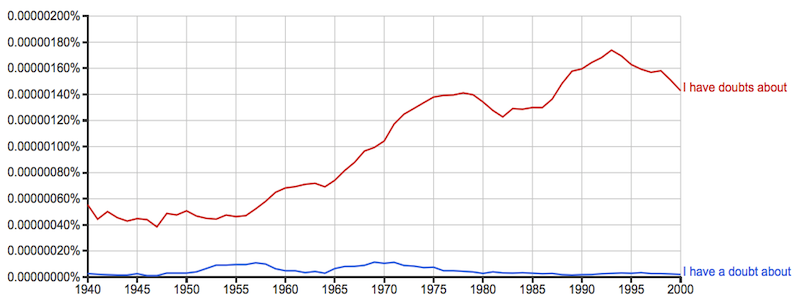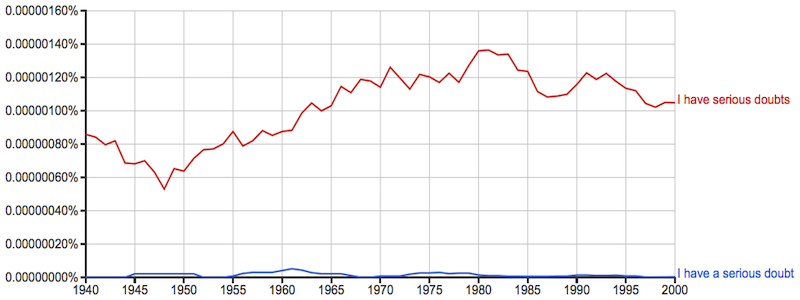As I said in my comment on your question, the tricky part is quantifying how many doubts you are having. Sure, in your title here, you've said ONLY ONE (in capital letters). However, your sample sentence (the one I edited) initially read as follows:
I have a doubt, a clear doubt. I'll pay you for this. Just snoop around my wife and find out whom does she meet every day.
To me, that sounded like a husband who suspected his wife might be having an affair. If so, it's rather hard for a man to compartmentalize his thoughts so much that he can narrow down his doubt to one and only one doubt, particularly when that one doubt is left unnamed. For example: Is she really seeing someone? If so, who? What is the nature of that relationship? Is she unhappy in our marriage? How long as this been going on? Or am I just being paranoid?
It's not so much that you can't say "I have a doubt about this," it's more that you can say "I'm having doubts about this." Such doubts are similar to misgivings, which, according to NOAD, is usually put in the plural:
misgiving noun (usu. misgivings) a feeling of doubt or apprehension about the outcome or consequences of something : we have misgivings about the way the campaign is being run | I felt a sense of misgiving at the prospect of retirement.
Even if the topic wasn't something nearly as tumultuous as a suspected affair, I'm more likely to use the plural form. Assume we are planning the company picnic; If I think the weather might get so bad that it ruins the picnic, I might mention:
I'm having doubts about the weather tomorrow.
I think it's easier to quantify one general doubt into several "sub-doubts" than to lump several little doubts into one and ONLY ONE countable doubt. For example, about the weather: Will it rain? If so, how hard will it rain? How long will it rain? What time will the rain start?
In short, I think your sample sentence flowed more naturally with the plural. The Ngrams would support my assertion as to "normal usage":




Doubts seem to be like cockroaches. Once you are aware of the first one, chances are there areis more than one.
